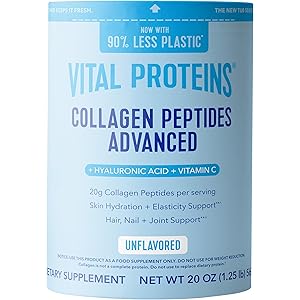PreserVision AREDS 2 Eye Vitamins, #1 Eye Doctor Recommended Brand, Lutein and Zeaxanthin Supplement with Vitamin C, Vitamin E, Zinc, and Copper, 120 Softgels (Minigels)
$33.89 (as of October 25, 2025 06:13 GMT +00:00 - More infoProduct prices and availability are accurate as of the date/time indicated and are subject to change. Any price and availability information displayed on [relevant Amazon Site(s), as applicable] at the time of purchase will apply to the purchase of this product.)Understanding Dietary Needs for Vegetarians
Vegetarianism is a dietary lifestyle that excludes meat, poultry, and fish, but it encompasses a wide range of dietary practices. Understanding the dietary needs for vegetarians is crucial for ensuring they receive all necessary nutrients while adhering to their ethical and health beliefs. This guide explores the essential components of a vegetarian diet, focusing on how to maintain a balanced and nutritious intake.
Essential Nutrients for Vegetarians
Vegetarians must pay particular attention to certain nutrients that are commonly found in animal products. Key nutrients include protein, iron, calcium, vitamin B12, and omega-3 fatty acids. Each of these nutrients plays a vital role in maintaining overall health, and vegetarians can obtain them through careful dietary planning and food choices.
Protein Sources for Vegetarians
Protein is essential for muscle repair, immune function, and overall health. Vegetarians can meet their protein needs through a variety of plant-based sources such as legumes, nuts, seeds, tofu, tempeh, and whole grains. Combining different protein sources, such as rice and beans, can create a complete amino acid profile, ensuring adequate protein intake.
Iron and Its Importance
Iron is crucial for transporting oxygen in the blood and preventing anemia. While red meat is a common source of iron, vegetarians can obtain iron from plant-based sources like lentils, chickpeas, quinoa, and fortified cereals. To enhance iron absorption, it’s beneficial to consume vitamin C-rich foods, such as citrus fruits, alongside iron-rich meals.
Calcium for Bone Health
Calcium is vital for maintaining strong bones and teeth. Vegetarians can find calcium in dairy products, leafy green vegetables, fortified plant-based milks, and tofu. For those who are lactose intolerant or avoid dairy, it’s important to seek alternative sources and consider calcium-fortified foods to meet daily requirements.
Vitamin B12: A Key Nutrient
Vitamin B12 is primarily found in animal products, making it a critical nutrient for vegetarians to monitor. Deficiency in B12 can lead to neurological issues and anemia. Vegetarians should consider fortified foods, such as plant-based milks and breakfast cereals, or take a B12 supplement to ensure adequate intake.
Omega-3 Fatty Acids for Heart Health
Omega-3 fatty acids are essential for heart health and brain function. While fish is a common source, vegetarians can obtain omega-3s from flaxseeds, chia seeds, walnuts, and algae-based supplements. Incorporating these foods into the diet can help maintain optimal omega-3 levels.
Planning Balanced Meals
To meet their dietary needs, vegetarians should focus on creating balanced meals that include a variety of food groups. A well-planned vegetarian plate typically consists of whole grains, a variety of vegetables, healthy fats, and protein sources. Meal prepping and experimenting with different recipes can help maintain dietary diversity and enjoyment.
Hydration and Dietary Fiber
Staying hydrated is essential for overall health, and vegetarians should aim to drink plenty of water throughout the day. Additionally, a vegetarian diet is often rich in dietary fiber, which aids in digestion and promotes satiety. Including fruits, vegetables, whole grains, and legumes can help meet fiber needs while supporting digestive health.
Consulting with a Nutritionist
For those transitioning to a vegetarian diet or seeking to optimize their nutritional intake, consulting with a registered dietitian or nutritionist can be beneficial. These professionals can provide personalized guidance, meal planning tips, and strategies to ensure that all dietary needs are met while adhering to vegetarian principles.


